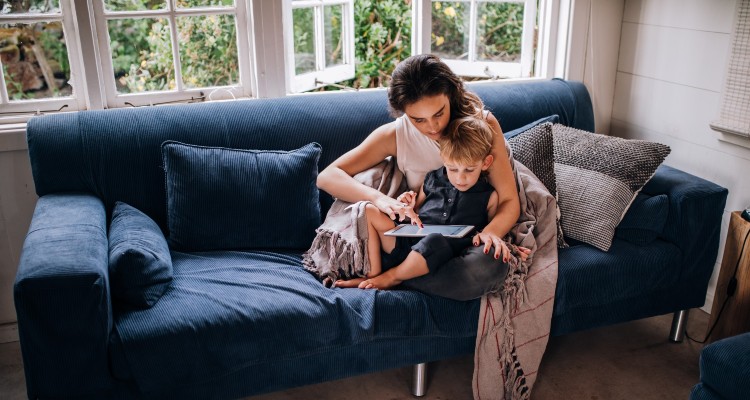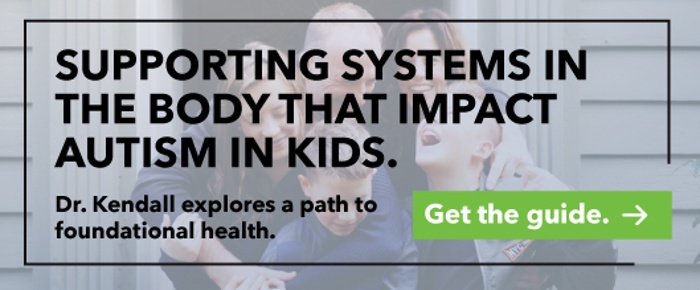
During the last few weeks, schools all over America have been shutting their doors for an unforeseeable amount of time. Some of you may be working remotely or worst case, laid off, and needing to find a new rhythm amongst the choppy waves of the latest outbreak.
Quarantines are mandated in some states, while in others, they're just highly encouraged. With so few options, many parents are left to handle their children by themselves 24/7— and this is no easy task when you have to work from home as well.
For parents with neurotypical kids, it's hard getting everyone accustomed to the new routines of daily life. For parents with children with autism spectrum disorder (ASD) or attention deficit hyperactivity disorder (ADHD), the challenge may seem insurmountable. However, adapting to the changes that come with a lengthy quarantine isn't overly complicated. In this article, we'll go through some tips to help you take advantage of the extra time you have with your child.
Use Quarantine Time to Bond With Your Child
If your work schedule has been cut or modified, make the most of the time you now have. This is your opportunity to spend additional time with your child. Whatever it is that you've always wanted to do with your kids, but never had the time, take advantage of the situation and make it happen. Whether or not your child is atypical, this advice works across the board. Children –especially those on the spectrum– may not voice their desire to spend time with you, but from my experience as both a doctor and parent, that doesn't mean they don't want to. With the extra free hours in your day, you can choose to engage in a favorite activity together and bond through a more meaningful connection.
For parents with ASD or ADHD children, quarantine time, can be a way to restructure the therapy sessions. Perhaps you've always wanted to do an hour of therapy within the day, but you never had the time to do it. Take advantage of this opportunity because there is no specified endpoint to the quarantine at the moment. So, rather than thinking that you're stuck at home, think of it as your opportunity to spend more time with your family. In the case of a child with special needs, it's more opportunity to implement a robust set of routines to make the change go over more smoothly.

Tips For Parents With ASD & ADHD Kids
Reduce Total Screen Time
Kids these days are using iPads and mobile devices sooner early in life than any generation before them. For parents with ASD and ADHD children, screen time should be monitored even more strictly than for neurotypical kids for two main reasons. First, screen time acts as a stimulant for children. Stimulants are generally poorly tolerated by kids with autism. They can make the child more irritated and exacerbate their sensory issues and behavioral issues. Second, screen time has been shown to decrease the development of social and communication skills in both neurotypical and atypical children. For children on the spectrum, it's worse.1,2,3 They love to control their environment. Youtube and other on-demand content is the perfect medium for this perceived control. In short, it draws them back into their shell as they tune out the world around them to focus on the one they can 'control.'
Selecting certain hours of the day and specific programs and games that your child can engage in will help to reduce the antisocial and behavioral issues that begin to appear once we introduce high usage of technology (TV, iPad, cellphone). This is where creating a new routine comes into play.
Create A New Routine for Consistency
Implementing a new routine as soon as possible is essential for a smoother transition for your ASD or ADHD child. The kids that fall into these two categories often do much better with structure, as it gives them a sense of control. Kids with autism are especially prone to seeking situations in which they have more control over their environment, as uncertainty drives anxiety and stress.
Both you and your child's schedules will likely be drastically different during the quarantine. However, that doesn't mean human interaction has to disappear –at least not in your own home. Capitalize on this time with your child by adding different activities that encourage social interaction, such as going for a bike ride or hiking in an area where you can still adhere to the social distancing mandates. If your child does have a friend that they enjoy interacting with, suggest a virtual play-date. Even parallel playing for kids with autism is considered a social interaction; thus, it can help them bridge the gaps they may have socially.
Continue Therapy If Possible
A quarantine suggests the end of appointments for the majority of any nonessential and essential health check-ups. For children with ASD who are actively being treated by therapists, canceling can do more harm than good. As long as the therapist is healthy and willing to see your child, I'd recommend that your child continue any necessary therapy to ensure that their progress doesn't diminish. If face-to-face therapy isn't available, virtual therapy may work (Skype). Virtual therapy may actually work better for some children on the spectrum.
Create A Unified Parental Front
Whether your child lives in one household or a split home, creating a unified front will help extinguish behavioral issues faster than being on opposite teams. Teamwork is essential to make your life easier and to keep your child from feeling overwhelmed by the confusion and stress of a new routine. Both neurotypical kids and atypical kids will sense any gaps in your parental armor, and they will try to exploit it. Basic ground rules help create stability in your child's life and, during trying times, will help them learn the proper coping mechanisms needed to face future challenges in life.
The quarantine has posed challenges for the majority of parents across the board. But instead of seeing it as an adverse circumstance, parents should see this as an opportunity to make things better at home; to build deeper bonds with their children and turn the figurative lemons into lemonade by using the simple tips mentioned above.
By Dr. Armen Nikogosian

*These statements have not been evaluated by the Food and Drug Administration. This product is not intended to diagnose, treat, cure or prevent any disease.
1"Autism and Screen Time: Special Brains, Special Risks - Psychology Today." 2016. https://www.psychologytoday.com/us/blog/mental-wealth/201612/autism-and-screen-time-special-brains-special-risks. Accessed March 25, 2020.
2" Causation Model of Autism: Audiovisual Brain Specialization... - NCBI." 2016. https://www.ncbi.nlm.nih.gov/pubmed/26146132. Accessed March 25, 2020.
3"Television Viewing Associates with Delayed Language Development - NCBI." 2008. https://www.ncbi.nlm.nih.gov/pubmed/18460044. Accessed March 25, 2020.


















